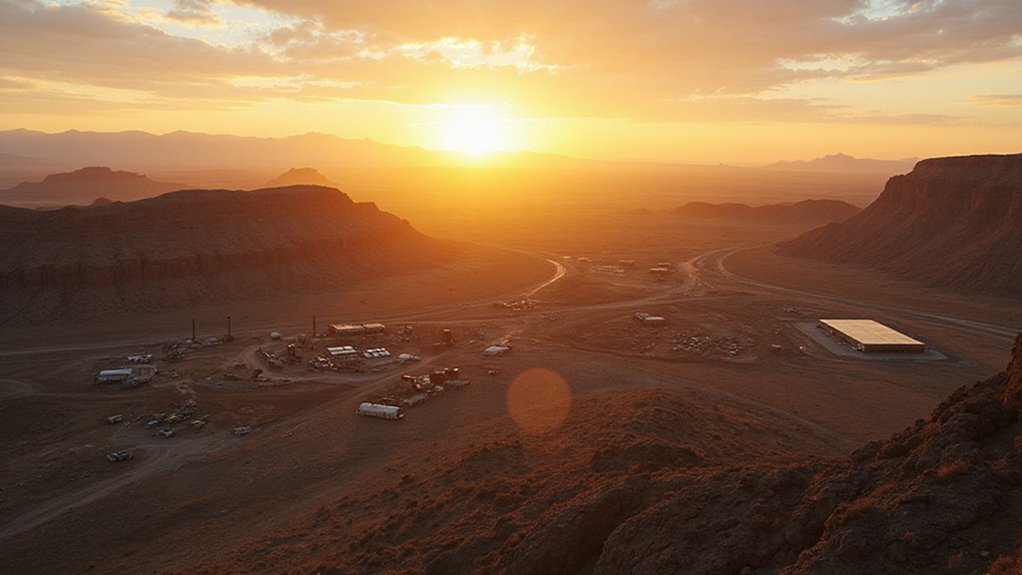The Trump administration just gutted environmental reviews for energy projects. New permits now take just 28 days instead of years. Oil, gas, coal, and even some renewables get fast-tracked under emergency provisions in major environmental laws. Officials cite “national security,” but critics like Earthworks aren’t buying it. Satellite data suggests emissions could be 400% worse than reported. Looks like “energy independence” trumps ecosystems and communities in this new reality.
In a bureaucratic speedrun that’s turning years into mere weeks, the Trump Administration has revealed its radical new emergency permitting procedures for energy projects. The Department of Interior announced on April 23, 2025, that environmental reviews typically stretching multiple years will now be crammed into a maximum of 28 days. Yes, 28 days. Because who needs thorough environmental analysis when you’ve got a “national emergency” to address?
The policy stems directly from President Trump’s National Energy Emergency declaration made back in January. Under these new procedures, environmental assessments that normally take up to a year will be rushed through in just 14 days. Full environmental impact statements? Those two-year comprehensive investigations into potential consequences? Now completed in less than a month. Talk about efficiency.
This expedited process applies to virtually every traditional energy source imaginable. Oil, natural gas, coal, uranium, biofuels – they’re all getting the express lane treatment. From initial identification to leasing, production, transportation, and generation, every step in the energy chain can now skip the line. The procedures also extend to critical minerals and renewable sources like geothermal energy and hydropower to boost domestic production capabilities. The initiative is specifically designed to enhance production efficiency in all aspects of energy project development.
The Interior Department is leaning on emergency provisions in existing environmental laws to make this happen. NEPA, the Endangered Species Act, and the National Historic Preservation Act all have emergency protocols that are being activated. The DOI cited an “imminent and growing threat” to national security as justification. How convenient.
Not everyone’s celebrating this streamlined approach. Earthworks quickly condemned the policy, arguing it fundamentally strips Americans of their right to provide input on infrastructure that affects their communities. Critics call the implementation “unprecedented” in both scope and timeline compression. This approach could exacerbate the industry’s already troubling record of emissions underreporting, which satellite data has shown can be up to 400% worse than officially acknowledged.
The new procedures follow a pattern established since Trump’s January 20 emergency declaration. Holland & Knight analyzed the process on April 24, followed by Enerdata’s reporting a day later. The administration’s message is clear: environmental review is just red tape standing between America and energy independence. Whether ecosystems agree remains to be seen.
References
- https://www.doi.gov/pressreleases/department-interior-implements-emergency-permitting-procedures-strengthen-domestic
- https://www.hklaw.com/en/insights/publications/2025/04/doi-implements-unprecedented-14-day-nepa-review-process
- https://www.enerdata.net/publications/daily-energy-news/us-doi-will-implement-emergency-permitting-procedures-energy-resources.html
- https://news.bgov.com/bloomberg-government-news/interior-sets-28-day-deadline-to-speed-energy-project-approvals
- https://earthworks.org/releases/statement-on-interior-department-rushing-oil-gas-and-mining-project-permitting/








